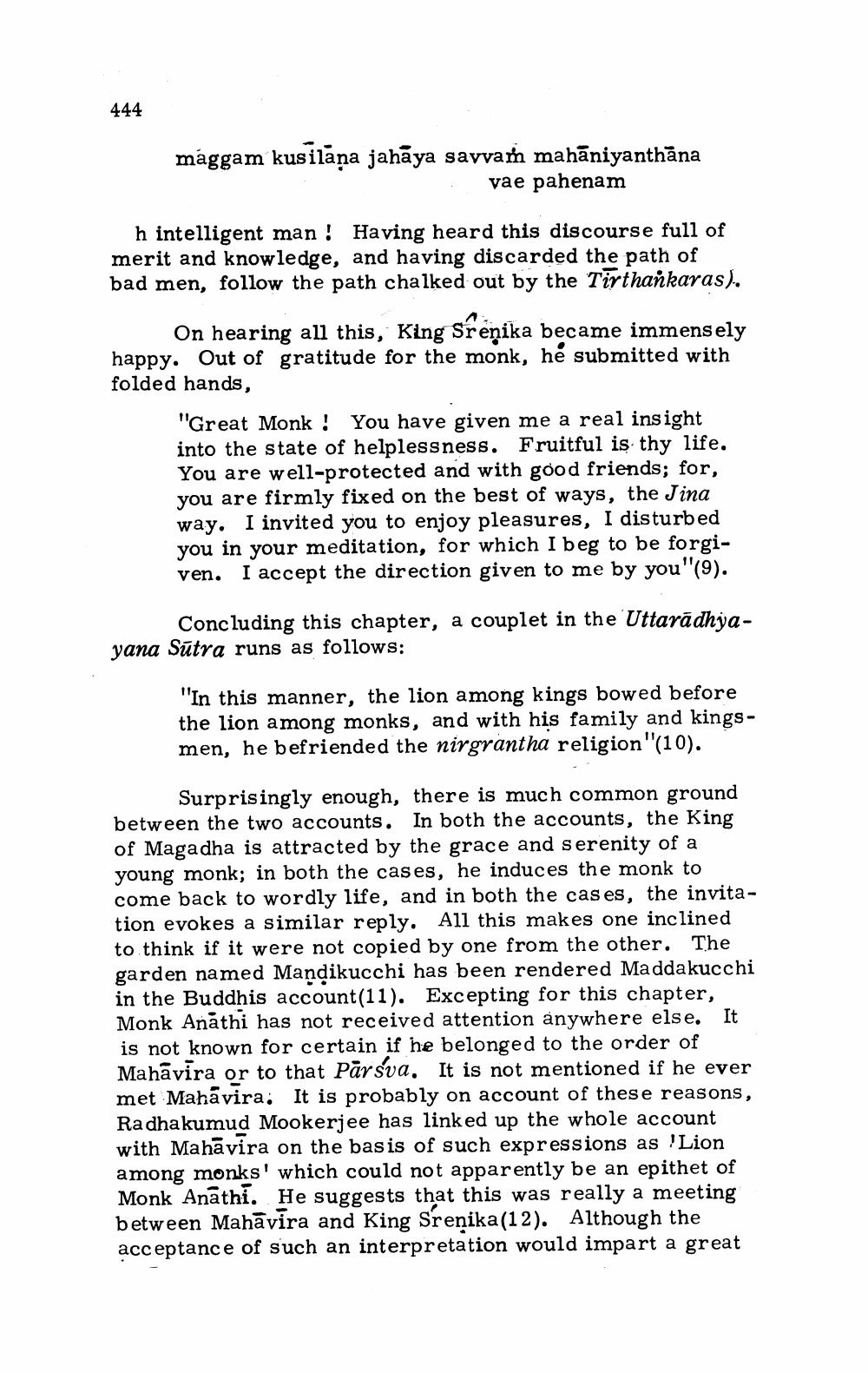________________
444
mággam kusilāņa jahāya savvaṁ mahāniyanthāna
vae pahenam
h intelligent man! Having heard this discourse full of merit and knowledge, and having discarded the path of bad men, follow the path chalked out by the Tirthankaras).
On hearing all this, King Sreņika became immensely happy. Out of gratitude for the monk, he submitted with folded hands,
"Great Monk ! You have given me a real insight into the state of helplessness. Fruitful is thy life. You are well-protected and with good friends; for, you are firmly fixed on the best of ways, the Jina way. I invited you to enjoy pleasures, I disturbed you in your meditation, for which I beg to be forgiven. I accept the direction given to me by you"(9).
Concluding this chapter, a couplet in the Uttarādhjayana Sūtra runs as follows:
"In this manner, the lion among kings bowed before the lion among monks, and with his family and kingsmen, he befriended the nirgrantha religion"(10).
Surprisingly enough, there is much common ground between the two accounts. In both the accounts, the King of Magadha is attracted by the grace and serenity of a young monk; in both the cases, he induces the monk to come back to wordly life, and in both the cases, the invitation evokes a similar reply. All this makes one inclined to think if it were not copied by one from the other. The garden named Mandikucchi has been rendered Maddakucchi in the Buddhis account(11). Excepting for this chapter, Monk Anathi has not received attention anywhere else. It is not known for certain if he belonged to the order of Mahāvira or to that Pārsva. It is not mentioned if he ever met Mahāvira. It is probably on account of these reasons, Radha kumud Mookerjee has linked up the whole account with Mahavira on the basis of such expressions as 'Lion among monks' which could not apparently be an epithet of Monk Anāthi. He suggests that this was really a meeting between Mahāvira and King Srenika(12). Although the acceptance of such an interpretation would impart a great




